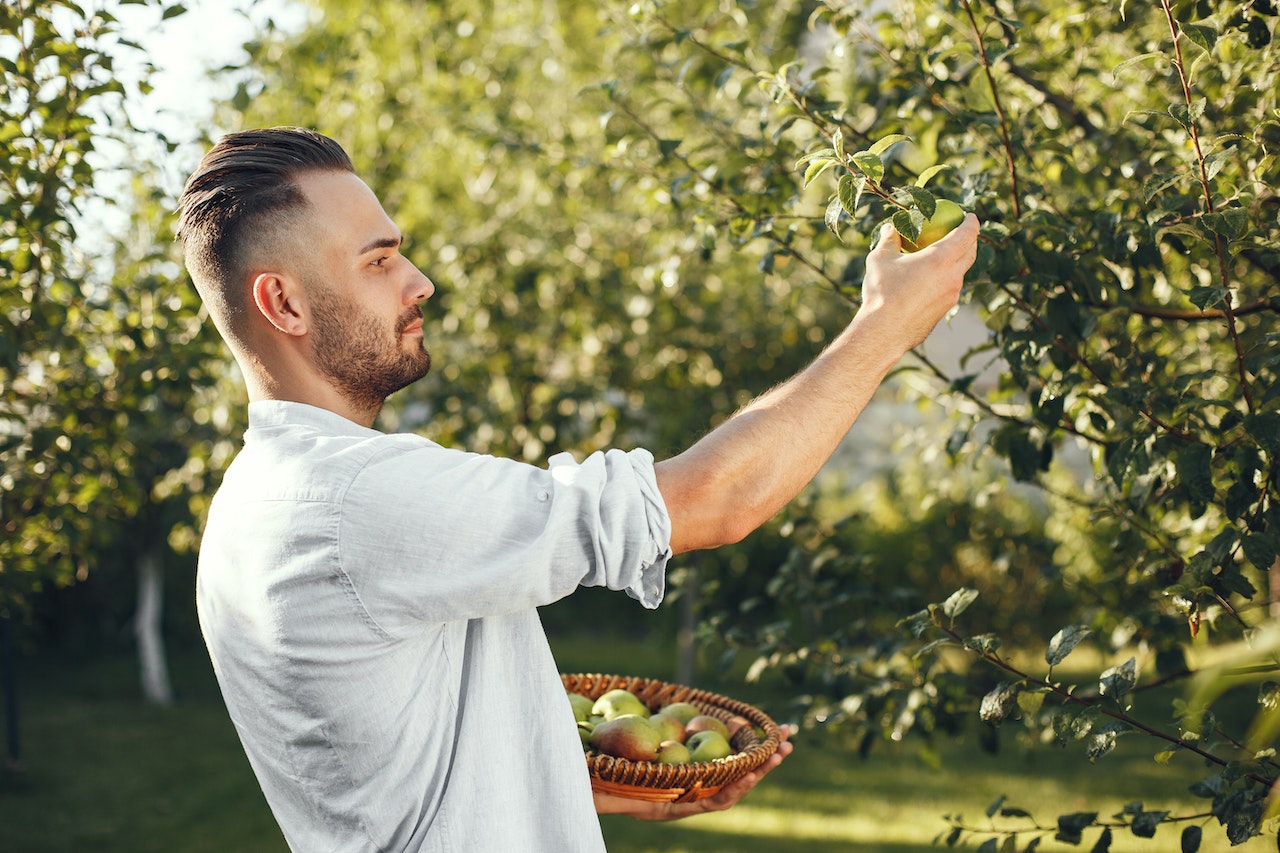Imagine picking a fresh plum directly from a tree on your walk to work or helping the kids reach a ripe pear for their school snack. If fruit trees became more common on our streets, Sheffield could see a boost in health for people, animals and the environment. European cities and towns like Lisbon in Portugal and Andernach in Germany are well known for their fruit trees dotted around the urban centres. But supposedly as Europe’s greenest city, Sheffield doesn’t offer the same tasty treats in its vast tree collection. Today, we explore how more fruit trees could boost our community in many ways.
Benefits of fruit trees in the city
The most obvious benefit of public fruit trees is the free food they can give. With the cost of living crisis continuing to burden many a grocery shop, fruit trees on every corner could provide an accessible, free way for people to get one of their five-a-day. Fruits are fantastic sources of vitamins, minerals, and fibre and can help reduce your risk of heart disease, stroke and some types of cancer.
Fruit trees benefit our physical health, but our mental health could also be improved. Being in nature has been shown to improve our mood and reduce the risk of mental illness. Increasing the number of trees in our neighbourhoods could combat the effects of stress and anxiety without us even thinking about it. These trees also provide an excellent opportunity for education, teaching our children about nature, seasonal food and the life cycles of plants. A tree on your doorstep can be a great visual example of the changing seasons in action.
Fruit trees also attract a variety of animals to their branches. What we humans don’t eat, the birds and bugs certainly will. Fruit trees can offer nectar and pollen for bees and other pollinators, leaves and bark for caterpillars and other insects, whilst fruits will be eaten by birds and mammals like foxes and voles. By planting more fruit trees in the city, we can have an outsized impact on the biodiversity of our urban environment.
Whilst fruit trees are fantastically beneficial for us all, it’s also about planting more urban trees full stop. Trees in the city can reduce pollutants in the air, absorb carbon from the atmosphere and decrease local temperatures during heat waves such as those we’ve seen in the last few years.
Making it fruitful for all
Great environmental benefits, more wildlife, beautiful blooms throughout the year and free food; what’s not to love? But, of course, it’s not as straightforward as planting trees, and the job is done. If we want this to be a fruitful project, there are many considerations for a foolproof plan.
Suitable trees must be selected with all those super benefits that don’t cause issues further down the line. Tree fellings in Sheffield over the past few years have shown we need trees that stand the test of time without damaging their surroundings. Deep rather than wide root systems can stop roots from spreading into buildings and pushing up pavements. Good management of the trees can ensure they don’t block access or become a hazard. Plus, a plan of action for the fruit produced will ensure that all the hard work doesn’t go to waste and our communities can enjoy produce all year round.
The solutions to these issues are there, but it will take a collaborative approach across the city to ensure we see the benefits. Sheffield is lucky enough to have a thriving network of organisations that could help the council and its partners create a city orchard on a scale never seen before. Here’s what’s already happening in Sheffield that has roots in creating positive projects for our community.
- Sheffield Fruit Trees is a social enterprise tree nursery cultivating fruit trees and perennial edible plants. They specialise in trees suitable for a Northern climate and fruit varieties unique to Sheffield that you won’t find anywhere else. You can buy directly from them for your own garden.
- Sheffield City Council has already produced a Sheffield Street Tree Partnership Strategy to supplement the Sheffield Trees and Woodlands Strategy 2018-33. Published in May 2021, it was developed by representatives from the Council, Amey, Sheffield Tree Action Groups (STAG), Sheffield and Rotherham Wildlife Trust, The Woodland Trust, and independent experts.
- The Food Works Sheffield upcycle quality surplus and locally grown ingredients into delicious food and drink that can be bought in their market, cafe and partner hubs. A fantastic example of how surplus food, such as from fruit trees, could be distributed to the wider community.
- Regather offers community apple pressing every autumn, turning the massive surplus of apples in Sheffield into delicious apple juice. It’s an excellent example of people coming together to maximise our resources. If we had more fruit varieties in the city, such as pears, plums and cherries, just think of what we could make together
- Abundance is a Sheffield organisation that rescues, shares, cooks, and juices fruit which may otherwise go to waste.

